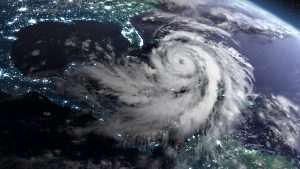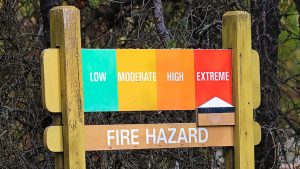When a new study of the effects of climate change on Canada’s marine coasts was released in mid-April it caused scarcely a ripple in the mainstream press.
It’s a pity, because it gives us the best idea I’ve yet seen about how rising sea levels will affect Canada. As well, it gives us a preview of the kind of work the construction industry will be doing as oceans rise, storm surges are stronger and defences are needed.
We’re a maritime nation with the longest coastline in the world. And the effects our warming world will have on that coastline is different east, west and north.
The study, Canada’s Marine Coasts in a Changing Climate, the latest by Natural Resources Canada (NRCan), tells us that about 6.5 million Canadians live near our marine coasts and more than $400 billion in goods are shipped annually through Canadian ports.
Globally, coastal flooding could displace hundreds of millions of people in the present century, the study notes, with the annual costs for adaptation measures such as seawalls, new dike construction and maintenance and rebuilding beaches estimated to be US$25 billion to US$270 billion per year by 2100.
In Canada, the report says, it is estimated that the cost of flooding of coastal dwellings alone would be $4 billion to $17 billion annually by 2050.
Within Canada, British Columbia is likely to be hardest hit, partly because of its geography and partly because of the concentration of population in the province’s lower mainland and southeastern Vancouver Island. The value of the built assets in the greater Vancouver area far exceeds that of any other part of the country’s marine coast, the study says.
Our northern coast is a hotspot for global climate change, the report tells us, and coastal communities up there, the ecosystems and the economic activities are already being affected.
Changes in the extent, thickness and duration of sea ice, both in the north and in some areas along the east coast, are already having an impact on coastlines and coastal communities.
Sea-level changes (which will vary significantly along all our coasts) will increase the frequency and seriousness of storm-surge flooding.
The effects of a changing climate represents a further challenge to coastal areas that are already facing things like aging demographics, shifting economies and, sometimes, conflicting priorities regarding land use and development.
Many people still want to live near the water regardless of the hazards that water might pose. But living near the coast must mean recognizing the dynamic nature of coastlines that are already constantly in a state of flux.
Because of all this, a range of adaptation measures will be needed in most settings, the report says. To date, the preferred form of adaptation has been to build seawalls, bulkheads and dikes. That form of "hard-armouring" may be the most viable option in some areas, but "soft-armouring" measures like adding sand to beaches is also a possibility in some places. So is simply retreating from some areas and, in effect, giving the land to the sea, which might also be more efficient, less costly and more sustainable. That’s already been done in parts of southeastern England.
It’s hard to say that anyone is a likely winner when dealing with climate change. The closest to it, perhaps, is the construction industry. That’s because virtually all mitigation methods mentioned in the report will involve things being built.
This study is not light reading, nor happy. Its 280 pages not only tell us what’s happening, but what we might be able to do about it. It’s a report that ought to be read and discussed by all manner of people — provincial officials, municipal engineers and, yes, contractors who do infrastructure work. The study can be downloaded, free, from NRCan. You’ll find their download page at http://bit.ly/1QOFYz9.
Korky Koroluk is an Ottawa-based freelance writer. Send comments to editor@dailycommercialnews.com.










Recent Comments
comments for this post are closed